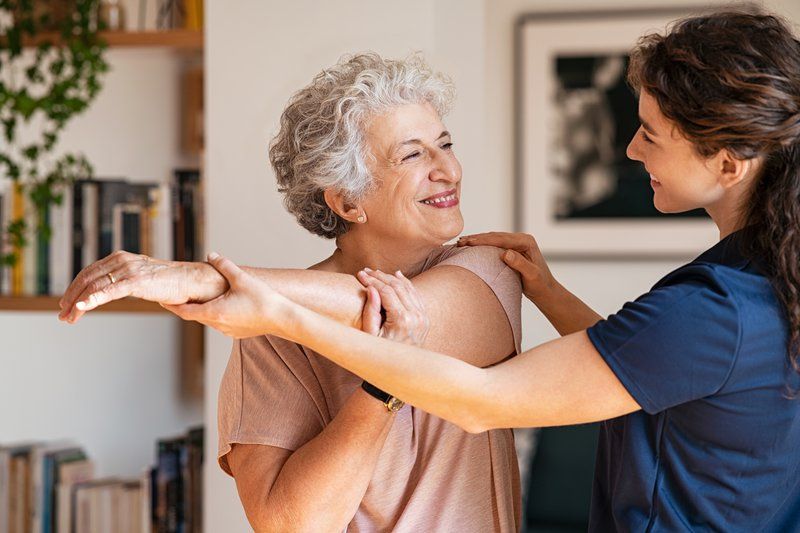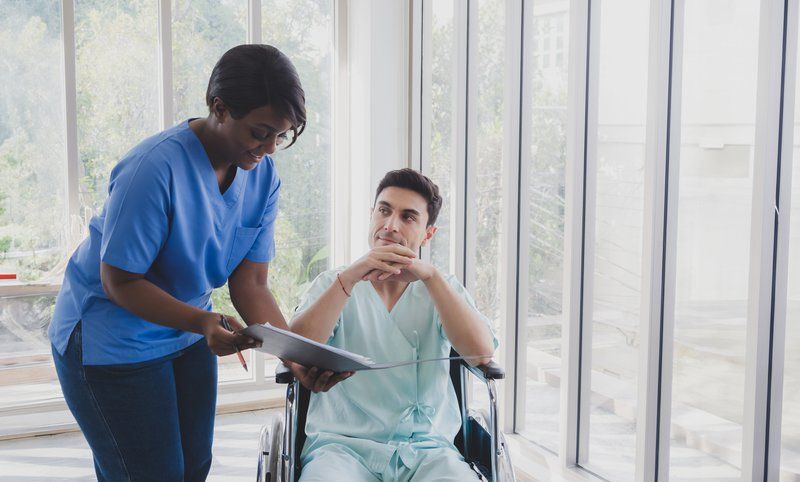
The integration of purposeful physical activities in brain injury rehabilitation plays a pivotal role in fostering recovery and enhancing cognitive functions. This article looks at the evidence-based techniques and scientific principles underpinning brain injury rehabilitation, shedding light on the specific physical activities that have shown efficacy in aiding brain injury recovery.
By exploring the intersection of physical activities and brain injury rehabilitation, we aim to highlight the innovative approaches that contribute to effective recovery and empower individuals undergoing rehabilitation.
Tailored Physical Rehabilitation Exercises for Effective Recovery
In brain injury rehabilitation, the incorporation of tailored physical exercises stands as a cornerstone in empowering individuals and facilitating effective recovery. By focusing on personalized physical activities, rehabilitation programs can address the specific needs of each individual, promoting targeted progress and overall well-being. This tailored approach not only enhances physical strength and mobility but also plays a crucial role in cognitive and emotional rehabilitation.

Importance of Individualized Physical Activities
Tailored physical exercises cater to the unique challenges and goals of each individual undergoing brain injury rehabilitation. These activities are designed to address specific cognitive and physical impairments, promoting targeted recovery and functional independence. By customizing physical exercises, rehabilitation programs can adapt to the evolving needs of individuals, ensuring a dynamic and responsive approach to recovery.
Empowerment Through Purposeful Engagement
Tailored physical activities empower individuals by providing a sense of agency and control over their rehabilitation journey . Engaging in personalized exercises fosters a positive and proactive mindset, contributing to a holistic approach to recovery. The individualized nature of these activities promotes a sense of ownership and motivation, driving individuals to actively participate in their rehabilitation process.
In essence, the role of physical activities in brain injury rehabilitation extends beyond mere physical rehabilitation; it encompasses a personalized and purposeful approach that empowers individuals to navigate their recovery journey with resilience and determination.
Harnessing Neuroplasticity for Recovery
Neuroplasticity , the brain’s remarkable ability to reorganize and form new neural connections, plays a pivotal role in brain injury rehabilitation. Specific physical activities can leverage neuroplasticity to promote recovery and enhance cognitive functions in individuals with brain injuries, offering a pathway to regain lost abilities and adapt to new challenges.
Adapting to Neural Changes Through Physical Activities
Neuroplasticity allows the brain to adapt and rewire itself in response to learning, experience, and injury. Tailored physical exercises capitalize on neuroplasticity, facilitating the formation of new neural pathways to compensate for damaged areas of the brain. By engaging in purposeful physical activities, individuals can harness neuroplasticity to enhance cognitive functions, such as memory, attention, and problem-solving skills.
Promoting Functional Recovery and Adaptation
The plastic nature of the brain enables individuals to regain lost functions and develop compensatory strategies through targeted physical activities. Physical exercises that challenge and stimulate the brain contribute to functional recovery and adaptation, fostering resilience in the face of cognitive impairments. Harnessing neuroplasticity through purposeful physical activities offers a pathway for individuals to adapt to their evolving cognition, promoting independence and quality of life.
Understanding and leveraging neuroplasticity through tailored physical activities provides a foundation for promoting recovery and enhancing cognitive functions in individuals undergoing brain injury rehabilitation. By embracing the adaptive potential of the brain, rehabilitation programs can offer a proactive and empowering approach to recovery.
Personalized and Engaging Physical Rehabilitation Activities
The practical implementation of purposeful physical activities is paramount to fostering independence and enhancing the quality of life for individuals undergoing rehabilitation. By incorporating personalized and engaging physical exercises into rehabilitation programs, a supportive and empowering environment can be cultivated, promoting holistic well-being and functional progress.
Tailoring Activities to Individual Needs
Rehabilitation programs customize physical activities to address the unique cognitive and physical challenges faced by each individual. Personalized exercises are designed to align with the specific goals and capabilities of the individual, ensuring targeted and meaningful engagement. By tailoring activities to individual needs, rehabilitation programs can create a supportive and inclusive environment that nurtures progress and independence.
Fostering Independence and Well-being
Engaging in purposeful physical activities empowers individuals to actively participate in their rehabilitation journey, fostering a sense of autonomy and accomplishment. Personalized and engaging exercises contribute to a positive and fulfilling rehabilitation experience, promoting emotional well-being and a sense of purpose.
The incorporation of purposeful physical activities into rehabilitation programs fosters a supportive and inclusive environment, where individuals can thrive and make meaningful strides in their recovery journey.
The integration of personalized and engaging physical exercises within rehabilitation programs serves as a catalyst for promoting independence, resilience, and overall well-being for individuals undergoing brain injury rehabilitation. By embracing a tailored and purposeful approach, rehabilitation programs can create an environment where individuals feel empowered and supported in their journey toward recovery.
Tailored Physical Activity Plans for Holistic Recovery
The development of personalized physical activity plans tailored to individuals undergoing brain injury rehabilitation is instrumental in promoting recovery and enhancing overall well-being. These personalized plans are designed to address the specific needs and goals of each individual, fostering a proactive and targeted approach to rehabilitation.

Customizing Plans for Targeted Progress
Personalized physical activity plans are tailored to align with the unique cognitive and physical requirements of individuals undergoing brain injury rehabilitation. These plans are developed in collaboration with healthcare professionals, ensuring that they cater to the specific goals and capabilities of each individual. By customizing activity plans, rehabilitation programs can promote targeted progress, functional independence, and overall well-being for individuals on their recovery journey.
Enhancing Overall Well-being and Quality of Life
Personalized physical activity plans contribute to a holistic approach to recovery, addressing not only physical rehabilitation but also emotional well-being and cognitive enhancement. These plans are designed to engage individuals in purposeful and meaningful activities, fostering a sense of fulfillment and purpose during the rehabilitation process. By enhancing overall well-being and quality of life, personalized physical activity plans play a pivotal role in empowering individuals to navigate their recovery journey with resilience and determination.
The development of personalized activity plans within brain injury rehabilitation programs offers a proactive and targeted approach to recovery, promoting holistic well-being and functional progress for individuals undergoing rehabilitation. By embracing a tailored and purposeful strategy, these plans empower individuals to actively participate in their recovery journey and make meaningful strides toward independence and overall well-being.
The integration of purposeful activities within brain injury rehabilitation programs stands as a cornerstone in fostering recovery, promoting independence, and enhancing overall well-being for individuals undergoing rehabilitation. By leveraging tailored physical exercises and personalized activity plans, rehabilitation programs can create a supportive and empowering environment that nurtures progress and resilience.
Discover more about specialized memory care and assisted living at Assured Senior Living.
Visit https://www.assuredassistedliving.com/ for valuable information and resources.
Individualized, positive brain injury care in a home setting. Contact us today, or download our free Family Decision Toolkit guide for more information.


